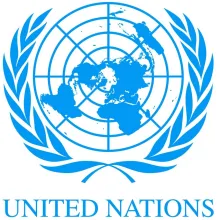
Report by the Special Rapporteur on the situation of human rights and fundamental freedoms of indigenous people,
James Anaya
Addendum
Situation of indigenous peoples in Australia
Download PDF English | Spanish | French | Arabic | Chinese
Distr.: General
1 June 2010
Original: English
Human Rights Council
Fifteenth session
Agenda item 3
Promotion and protection of all human rights, civil,
political, economic, social and cultural rights,
including the right to development
Summary
This report contains the observations of the Special Rapporteur on the situation of human rights and fundamental freedoms of indigenous peoples, James Anaya, on the situation of Aboriginal and Torres Strait Islander peoples in Australia. The report is based on exchanges of information with the Government, indigenous peoples and other interested parties, including during the Special Rapporteur’s visit to Australia from 17 to 28 August 2009.
Having suffered a history of oppression and racial discrimination, including acts of genocide, such as the removal of indigenous children from their homes, as well as the dispossession of their lands, Aboriginal and Torres Strait Islander peoples today endure severe disadvantage compared with non-indigenous Australians.
The Government of Australia is to be commended for its several initiatives and programmes of recent years to address the human rights of Aboriginal and Torres Strait Islander peoples. The Special Rapporteur particularly notes the expressions of commitment made by the Government with a view to reconciliation with indigenous peoples, including the “National Apology” of 2008, and its support for the United Nations Declaration on the Rights of Indigenous Peoples. He is also pleased to note the important goal set of eliminating significant social and economic disadvantages faced by Aboriginal and Torres Strait Islander peoples in key areas, including early childhood, schooling, health, economic participation, healthy home, safe communities and governance and leadership, by the year 2020 and the resources committed by the Government thereto.
Nevertheless, in his report, the Special Rapporteur observes that, overall, there is a need to incorporate into government programmes a more integrated approach to addressing indigenous disadvantage across the country, one that not just promotes social and economic well-being of indigenous peoples, but also advances their self-determination and strengthens their cultural bonds. The Government should seek to include in its initiatives the goal of advancing indigenous self-determination, in particular by encouraging indigenous self-governance at the local level, ensuring indigenous participation in the design, delivery and monitoring of programmes and promoting culturally appropriate programmes that incorporate or build on indigenous peoples’ own initiatives. Additionally, further efforts are needed to secure indigenous peoples’ rights over lands, resources and heritage sites and ensure that indigenous peoples living in remote areas can enjoy the same social and economic rights as other segments of the Australian population, without having to sacrifice important aspects of their cultures and ways of life.
Of particular concern is the Northern Territory Emergency Response, addressed in appendix B, which, in several aspects, limits the capacity of indigenous individuals and communities to control or participate in decisions affecting their own lives, doing so in a way that discriminates on the basis of race, thereby raising serious human rights concerns.
The Special Rapporteur offers a number of recommendations with the hope that they will help guide the Government of Australia, Aboriginal and Torres Strait Islander peoples and other interested parties to develop and implement laws, policies and programmes that conform to the international human rights standards related to indigenous peoples.

